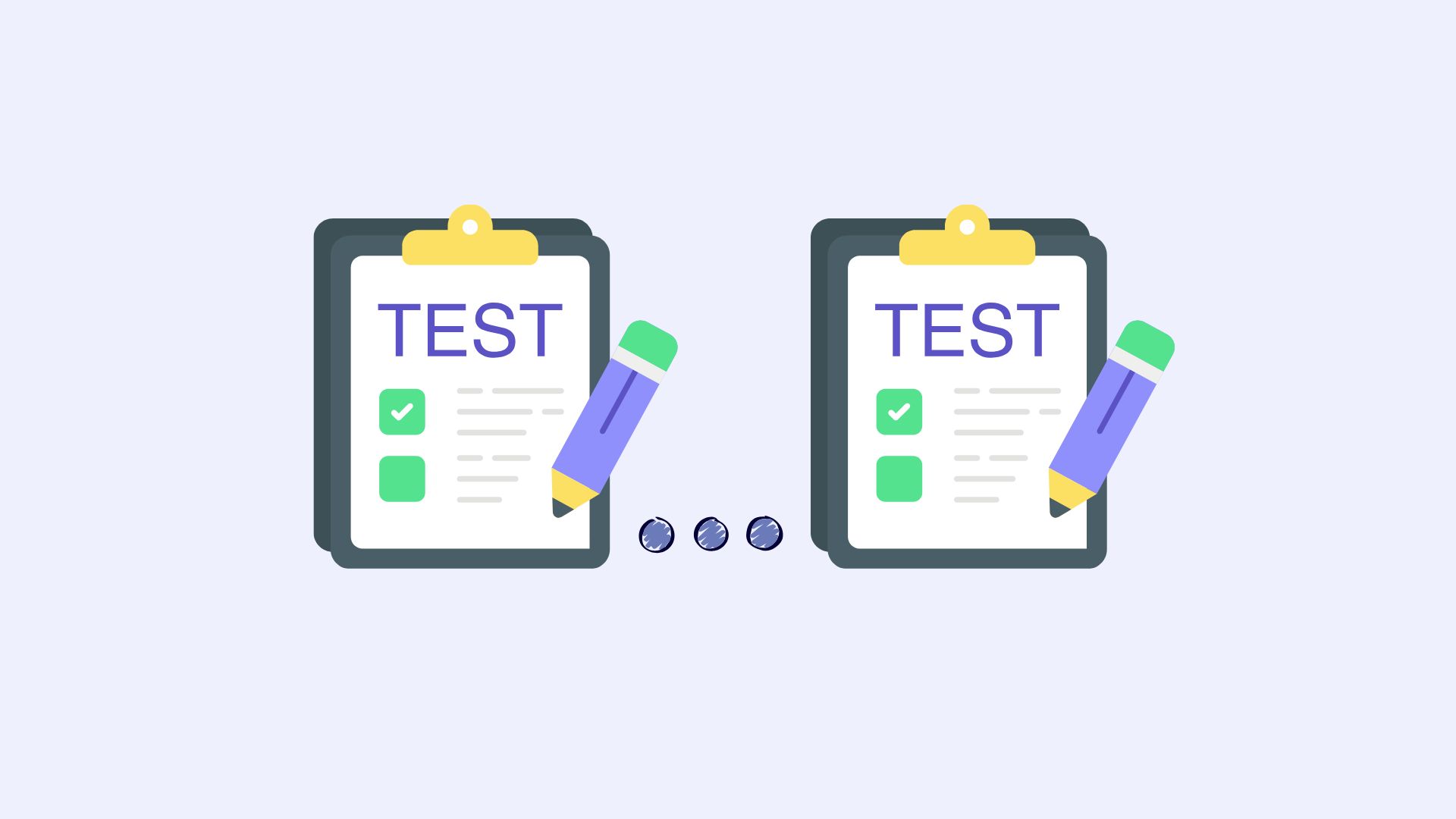Take the qualification confirmation test now.
Tutors



subject proficiency.
Online tests for tutors
The educational environment is constantly changing: new standards, methods, digital tools are emerging, and the requirements from employers and students are growing. As a result, teachers are forced to regularly assess their own skills and the quality of the educational process. This is where teacher tests come in handy, allowing educators to independently assess their competency level, check their knowledge, and determine if improvements are needed in any specific area.
Why do teachers need tests?
The relevance of testing in the professional environment of educators is linked to the necessity of continuous self-development and qualification validation. Practice shows that systematic monitoring of one's own knowledge can provide a powerful boost for professional growth.
Key reasons why tests are truly important:
Assessment of proficiency in modern educational technologies and methods;
Identification of areas where gaps exist that need to be filled promptly;
Regular confirmation of compliance with current educational standards;
Increased confidence in one's own competencies and skills;
Simplified planning of professional development and self-education programs.
By using test data, teachers gain the opportunity to assess their knowledge level and build individualized development paths. The more consciously a teacher approaches test results, the greater the chances of strengthening their authority in the educational community and improving their effectiveness with students.
The Role of Tests in the Educational Process
Such a serious attitude towards self-assessment of knowledge is explained by the fact that the teacher is the bearer of key competencies and forms fundamental skills in students. Systematic testing provides feedback that helps adapt to new challenges on time. This can relate not only to subject content but also to ways of motivating students, implementing interactive teaching methods, and using online resources.
Benefits of Using Tests for Teachers
For a teacher who decides to seriously analyze their skills, tests are a convenient and understandable form of self-control. They save time, help structure knowledge, and make it easier to create educational plans. At the same time, online tests for teachers are becoming increasingly widespread, allowing teachers to get results immediately and quickly move on to corrective actions.
Ready-to-use Online Tests for Teachers
In the context of a heavy workload, teachers often do not have enough time for additional knowledge verification through courses or exams. Therefore, ready-made solutions—online tests for teachers—are coming to the rescue, available on the ТеМа platform. You can use the website with online teacher tests, where tasks are offered across various subjects to check qualifications in a specific topic.
Benefits of Using Tests for Teachers
In addition to convenience, time-saving, and clarity, tests provide the teacher with an opportunity to regularly check their progress. Indeed, this form of work has many advantages.
The main benefits of testing for teachers are as follows:
Continuous adjustment. Test results serve as a basis for filling gaps and improving teaching methods;
Objectivity of data. Not subjective opinions, but real knowledge and skills are assessed;
Flexibility of formats. The ability to combine different types of questions, tailored to specific goals;
Comparison of results. A teacher can compare their achievements with those of colleagues or their own previous results;
Increased motivation. The presence of clear criteria and regular checks stimulates interest in professional development.
It is important to emphasize that the potential of testing is much broader than just controlling theoretical knowledge. Analyzing statistics and the dynamics of results helps identify systemic problems in the educational process, as well as timely revise curricula and introduce more effective approaches. If you wish to implement testing in your teaching practice, the ТеМа platform can once again assist you.
Why You Should Start Using Tests Today
Constant testing of one's competencies allows a teacher to remain flexible, stay up to date with new trends, and achieve the best results in working with students. This is why it is so important to connect to a site with tests in time, without waiting for a decline in teaching quality or criticism from administration. Ultimately, focusing on testing becomes a guarantee of confidence in one's skills and the best indicator of motivation for self-education and professional improvement.